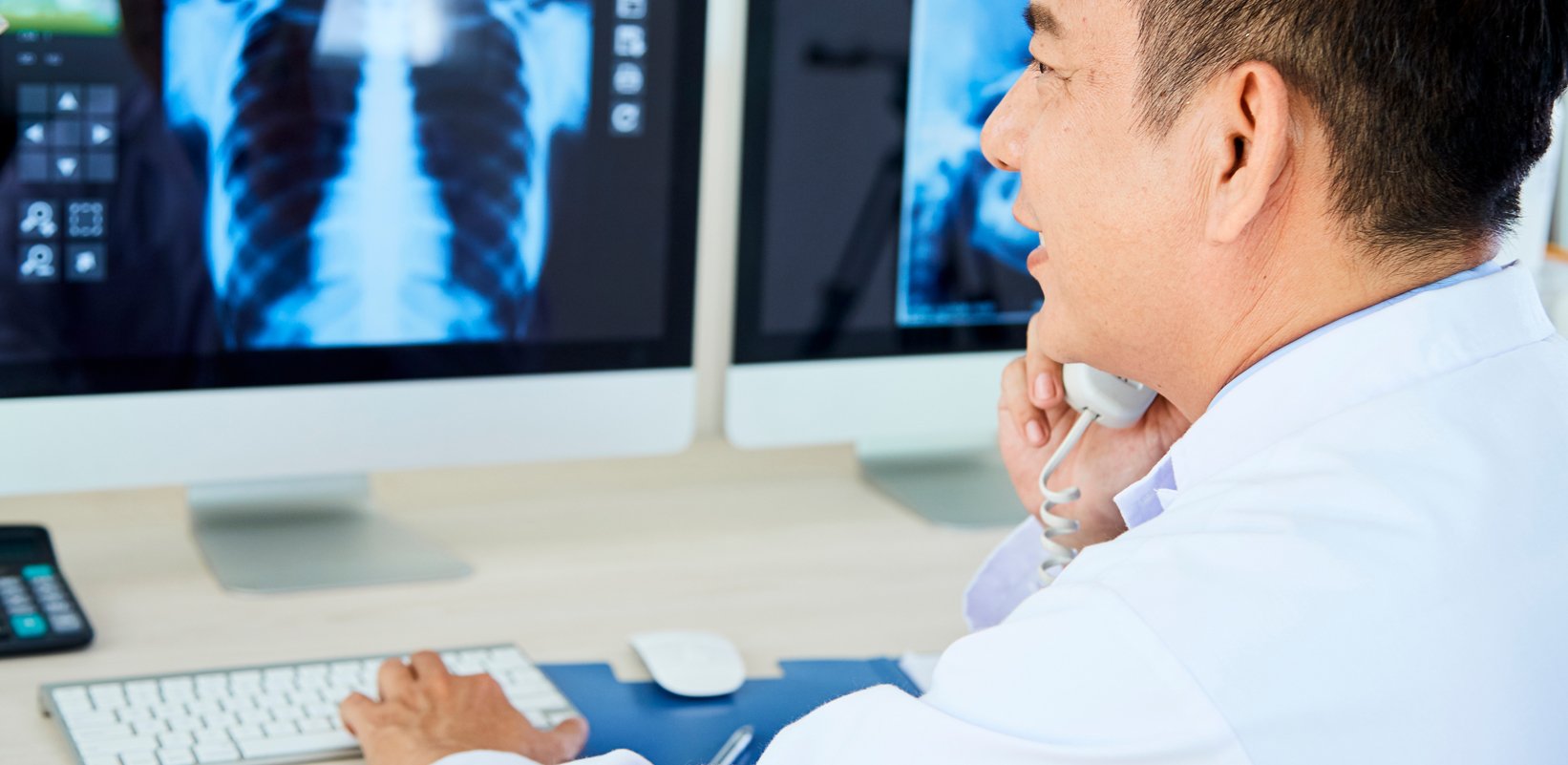The Pulmonary and Critical Care Medicine Fellowship is an ACGME accredited 3-year training program. During training, fellows gain exposure to the complete spectrum of pulmonary and critical care diseases.
Learning occurs throughout the year at the bedside, on rounds, in the ambulatory arena and through interdisciplinary conferences. Rotation-specific face-to-face feedback and coaching is carried out uniformly at the end of each rotation which provides the fellows with a roadmap for personal, professional improvement.
The program consists of 33 modules (4-week blocks) of core clinical rotations and electives and 9 modules of research allowing for a wide variety of scholarship activities. Fellows learn to lead multi-disciplinary quality improvement projects to successful completion.
The critical care experience provides the opportunity to manage adult patients with a wide variety of serious illnesses requiring treatment in a critical care setting. The majority of the intensive care unit rotations are in the Medical Intensive Care Unit (MICU).
However, because critical care is multidisciplinary in nature, fellows rotate for a minimum of 3 blocks in additional critical care specialties.
Our program is unique in training the next generation of specialists within a racially and ethnically diverse population of patients, the majority being disenfranchised, with complex comorbidities, and multiple financial and social barriers.
Because our faculty and fellows care for a variety of immigrant populations, they have the opportunity of managing unique conditions that span multi-national exposures.
Goals and Objectives
MetroHealth Medical Center’s (Case Western Reserve University) Pulmonary and Critical Care Fellowship Program is an ACGME-accredited program designed to accomplish training in both Pulmonary and Critical Care Medicine in a three-year time period. Graduates of the program are board-eligible in both specialties. General goals of the program include the following:
- To provide training in Pulmonary and Critical Care Medicine at a level exceeding that required for the Fellow to acquire competency in both subspecialties.
- To provide sufficient training in Pulmonary and Critical Care procedures so that Fellows are technically competent and understand the indications, limitations and complications of each procedure
- To provide an appropriate educational environment for encouraging a rigorous academic approach to medicine and fostering techniques of self-education.
- To provide the opportunity for pursuing an academic career by ensuring adequate time for a supervised research experience.
General Learning Objectives of the Fellowship
Fellows acquire broad experience in the treatment of serious illness by virtue of the central role they play in the triage and management of patients in the MICU, Pulmonary Consultation Service and in the outpatient clinics. Specific learning objectives of the Fellowship are as follows:
ICU Rotations:
- To understand the basic pathophysiology of critical illness
- To quickly develop a logical, evidence-based plan to treat patients
- To master the management of respiratory failure, shock states, sepsis, ARDS, acute renal failure, acute MI, intoxications, acid-base disturbances, GI bleeding, acute life-threatening infections, and acute endocrinologic emergencies, among other illnesses.
- To understand the indications, complications and limitations of ICU procedures (central line placement, initiation of mechanical ventilation, chest tube placement, pulmonary artery catheter placement, arterial line placement, bronchoscopy)
- To apply ethical standards to patient care
- To develop administration skills
Pulmonary Consultations and Outpatient Experience:
- To understand the diagnosis and treatment of acute and chronic lung diseases
- To master the procedural skills and understand the indications, complications, and limitations of procedures associated with pulmonary medicine
- To master the interpretation of pulmonary function and exercise testing
- To gain familiarity with sleep studies
Education and Research:
- To emphasize scholarship, self-instruction, development of critical analysis of clinical problems, and the ability to make appropriate decisions
- To provide the opportunity to achieve the cognitive knowledge, procedure skills, interpersonal skills, professional attitudes, humanistic qualities, and practical experience required of a subspecialist
- To learn the design and interpretation of research studies, responsible use of informed consent, research methodology, and interpretation of data
- To provide instruction in the critical assessment of new therapies and of the medical literature
- To provide the opportunity to acquire the skills to effectively manage and direct a variety of Pulmonary administrative areas (i.e. PFT laboratory, Pulmonary Rehabilitation, etc.)
